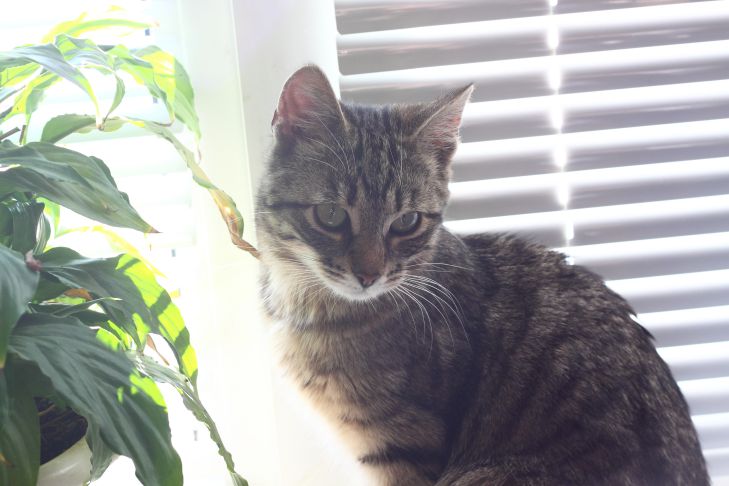Many cat owners have noticed how their pets eagerly eat indoor plants or grass outside.
This behavior can be confusing and disturbing.
Is the cat really lacking something, or is this a natural behavior that is inherent in nature?
Natural instincts of cats
Grass eating is a natural behavior for cats, inherited from their wild ancestors. In the wild, cats often eat grass and plant leaves, and this is not always due to a lack of nutrients.
Digestive system and cleansing
One of the main reasons cats eat grass is to aid in digestion. Grass helps to naturally clear the stomach of hairballs that form when licking.

Grass fibers help the cat to induce a gag reflex and get rid of undigested food and hair.
Vitamins and microelements
Although cats are obligate carnivores, small amounts of plant foods can be beneficial to their health.
The grass contains folic acid, vitamins A and D, and some trace elements that can supplement your pet's diet.
Lack of fiber in the diet
If your cat eats grass frequently and in large quantities, this may indicate a lack of fiber in its diet.
The owner should review the pet's menu and perhaps add special food with a high fiber content.
Stress and psychological factors
Sometimes grass eating can be associated with stress or boredom. Cats may use it as a way to self-soothe or to get their owner's attention.
In such cases, it is important to devote more time to your pet and provide it with enough entertainment.
Digestive problems
If your cat starts eating grass suddenly and in large quantities, it may indicate digestive problems or stomach discomfort.
In such cases, it is recommended to consult a veterinarian to rule out gastrointestinal diseases.
Self-medication instinct
There is a theory that cats use grass as a natural medicine. Some plants have anti-inflammatory and antiparasitic properties that can help a cat with minor ailments.
Plant Safety and Selection
It is important to remember that not all plants are safe for cats. Some indoor flowers can be toxic to pets.
Owners are advised to grow special "cat grass" or oats to safely meet their cat's green needs.
The influence of age and lifestyle
Young, active cats may be more likely to show interest in grass than older cats. Also, cats living in apartments may be more likely to eat houseplants due to limited access to the natural environment.
Seasonal changes in behavior
Some owners note that their pets show more interest in grass during certain seasons, especially spring and summer. This may be due to natural cycles and changes in the animal's body.








